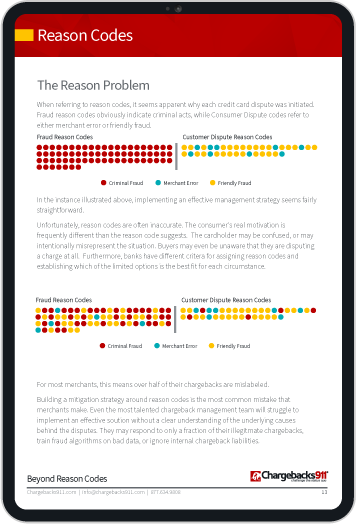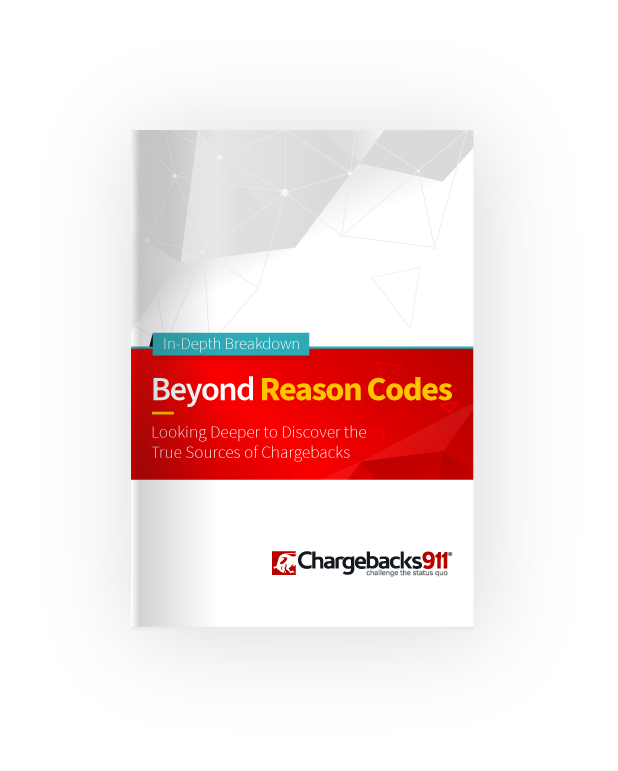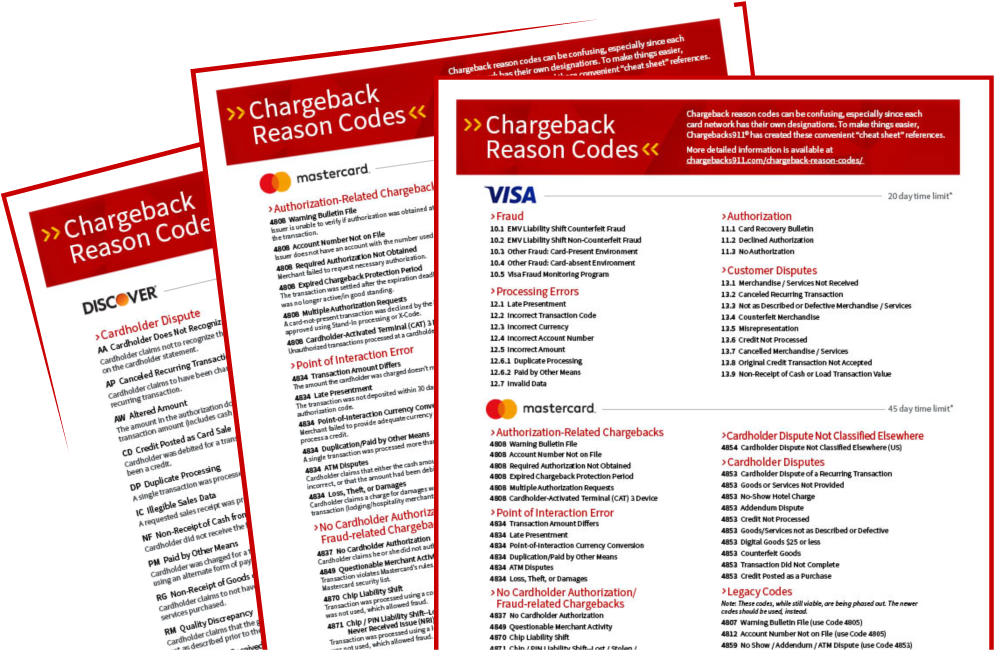Mastercard Reason Code 4853 Cardholder Dispute of a Recurring Transaction
Chargeback reason code 4853 is one of the numeric labels assigned by banks to each customer dispute, indicating the given reason for the claim. We say the given reason because it may or may not reflect the true reason.
Under certain circumstances, Mastercard may allow consumers to reverse a payment card transaction by filing a chargeback. These chargebacks were designed to be a “last-resort” for disagreements that cannot be resolved with the merchant, but are more and more often used as a loophole to commit fraud.
Reason code 4853 falls under the broad category “Cardholder Dispute,” meaning the cardholder is saying something about the transaction is wrong. The code can be used in multiple specific situations; when necessary, an additional message will be provided along with the reason code to inform the merchant which particular type of chargeback applies to the claim.
That said, there are actually two different “recurring transaction” scenarios that fall under this umbrella: one is for Cardholder Dispute of a Recurring Transaction, while the other is for Issuer Dispute of a Recurring Transaction.
The differences are minor, but important. Both have to do with chargebacks stemming from a recurring billing (subscription) business model. In this post, we’ll cover cardholder disputes of recurring transactions; in another article, we’ll go over issuer disputes.
Should Merchants Worry About Reason Code 4853 Chargebacks?
Chargeback questions? We have answers. Click to learn more.

What Is a Cardholder Dispute of a Recurring Charge?
Chargeback reason code 4853 can be used to indicate cases in whic the merchant failed to cancel a recurring payment (when requested by the cardholder). It may also apply if a cardholder claims they were never informed that the transaction would be recurring.
A recurring transaction is a payment card charge that automatically reoccurs on a regular basis. The payment is for an ongoing service—subscriptions or membership fees, for example—and may be collected monthly, quarterly, or annually, or on some other specified schedule.
Customers like the convenience of automatically-recurring payments. Merchants, for their part, benefit from simplified billing and a steady revenue stream. However, if a merchant processes a payment after the cardholder requests that the service be terminated, a recurring transaction dispute will probably occur.
Recurring Transaction Disputes: Causes and Conditions
Most legitimate chargebacks with recurring charge reason codes are the result of avoidable merchant errors. In some cases, the merchant fails to make it clear up front that the transaction is not a one-time fee. The merchant doesn’t specify that it will be billed to the payment card on an ongoing basis until the cardholder opts out.
In another instance, the cardholder may notify the merchant to cancel the recurring amount. However, the merchant continued to process additional transactions anyway.
The causes may seem obvious, but the situations triggering these errors can be easy to overlook. For example, a merchant may feel that the recurring nature of the transaction is clearly spelled out on the business’s website…but that doesn’t mean customer understands the terms in the same way.
Plus, not having a system in place to easily and quickly respond to customer cancellation requests can lead to chargebacks that would otherwise have been prevented. If a chargeback is to be filed, however, it is under a strict time limit: the maximum amount of time that can pass between the transaction processing date and the chargeback processing date is 120 calendar days.
Recurring Transaction Disputes: Response and Prevention
Obviously, if a business regularly receives chargebacks based on recurring transactions, there’s a problem that needs to be addressed by the merchant. But, as we alluded to earlier, a false reason code may be used to mask an attempt at friendly fraud.
Cardholders may claim that they were not aware of the recurring transaction, even though they agreed to the arrangements. They can also insist that a cancellation request was submitted long before a posted cut-off, when the request was actually sent at a much later date (or not sent at all).
Merchants should carefully investigate suspicious claims and challenge invalid chargebacks through the representment process.
Even so, most of these chargebacks will be the result of merchant error—and that means they are highly preventable. We’ve listed some steps merchants can take to prevent future occurrences of chargebacks with a disputed recurring transaction reason code:
- Clearly explain the recurring nature of these payments on the checkout page: Prior to accepting the transaction, merchants should require customers to acknowledge (via a checkbox) that they have read and understand the terms of the agreement.
- Process credits in a timely manner: Check customer records regularly for cancelation or non-renewal requests and take the appropriate action to comply.
- Enroll in account updater services: When customers get a new card, they commonly forget to update account information for recurring transactions. An account updater service automatically enters this information into the merchant’s system, allowing transactions to continue uninterrupted.
- Alert customers that their account has been closed: If any amount remains outstanding, seek another form of payment. The merchant should inform the cardholder immediately if a credit has been, or will be issued. This will discourage the individual from filing a recurring billing chargeback.
- Keep up-to-date on industry rules and regulations: Rules regarding recurring transactions can change at any time. It’s important for merchants to remain aware of these changes.
Vigilance and training are the keys to preventing these errors. Merchants should be certain that staff members understand the correct way to process transactions under these circumstances.
Chargeback Prevention: A Wider View
While merchants can take many steps to help prevent legitimate claims, fraudulent chargebacks are another matter: friendly fraud is post-transactional in nature, meaning there’s no sure way to identify it beforehand. Merchants can do everything “right” yet still have customer dispute filed against them.
So, while it’s generally more efficient to take a proactive stance when it comes to chargeback management, a truly effective strategy must encompass both prevention and disputing cases of friendly fraud.
Chargebacks911® can help your business manage all aspects of chargeback reason codes, with proprietary technologies and experience-based expertise. Contact us today for a free ROI analysis to learn how much more you could save.









